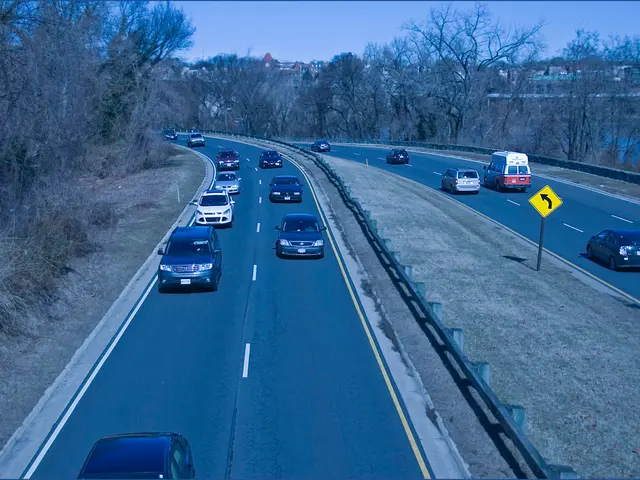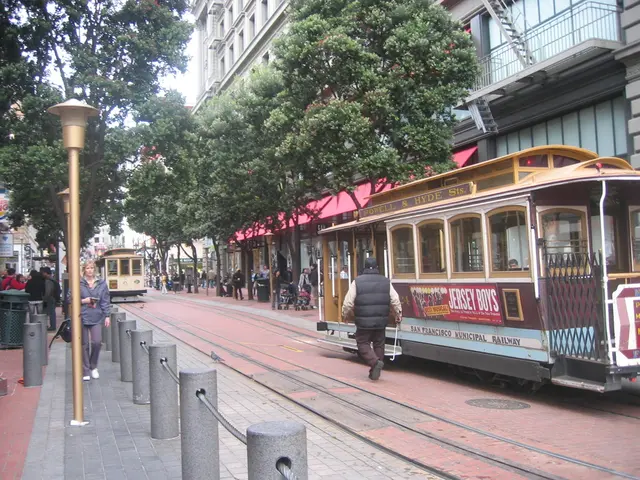Taxi modernization marks its anniversary with brakes engaged
Here's the revised article with enrichment data incorporated where appropriate:
Taxi Tensions Linger in Berlin(Updated as of current sources)
Berlin's taxi industry continues to face tension, according to Leszek Nadolski, first chairman of the Guild of the Berlin Taxi Trade, celebrating its 125th anniversary this week. Many drivers remain financially dependent on side jobs with intermediary taxi platforms like Uber and co. Despite the introduction of a fixed-price option for taxi rides about a year ago, utilization still hasn't improved. However, Nadolski sees this measure positively – it offers passengers price certainty.
Battle Over Minimum Prices
The competitive pressure from rental car platforms such as Uber or Bolt remains a significant concern for the guild. The major issue at stake is the so-called minimum prices. While taxi companies cannot offer rides below a certain price level, the regulation does not apply to rental cars, which can adjust their fares arbitrarily based on demand.
The Senate declared in January its intention to examine the introduction of minimum prices for rental cars, but as of now, the examination has not been completed. The Senate administration only revealed that a decision would be made this year, without providing further details. In Leipzig, where minimum tariffs for rental cars were implemented in 2021, one company filed a lawsuit. The Leipzig Administrative Court ultimately ruled that minimum prices are generally permissible, but the city's rates were deemed too high. Similar legal challenges can be expected in Berlin if a corresponding regulation is enacted.
Politics listens to the Taxi Trade's Concerns
Aside from scrutinizing the introduction of minimum prices, the Senate administration has tightened its stance against illegal companies operating without a permit on the platforms. The State Office for Civil and Administrative Affairs (Labo) inspected the entire vehicle fleet on the rental car platforms Uber, Freenow, and Bolt last year, and removed hundreds of cars. The platforms acknowledged this move as important and necessary, but now criticize the permit practice of the Labo, citing excessive processing time, lack of consultation, and unclear rejection reasons.
Signs suggest that many car rental companies are re-registering their fleets in small towns surrounding Berlin, overwhelming local authorities while the Labo no longer holds jurisdiction, according to Nadolski from the Taxi Guild. The Brandenburg County Association fears the emergence of a "shadow economy" in the car rental industry. By the end of June, the Brandenburg Ministry of Transport plans to convene with Berlin and county representatives to discuss this issue.
Despite ongoing tensions, there is currently no specific mention in the provided sources of a direct response by the Berlin Senate to demands from the taxi industry for minimum prices for rental car platforms. Requesting up-to-date and detailed information may require consulting Berlin Senate press releases, local news outlets, or official government websites.
- The Berlin Senate, as yet, has not provided a direct response to the demands from the taxi industry for implementing minimum prices in the rental car platforms, such as Uber and Bolt, according to the revised article.
- The introduction of minimum prices in the rental car sector, as a means to alleviate industry tensions, is a topic of interest and potential discussion between Berlin and county representatives, as mentioned in the revised article.








